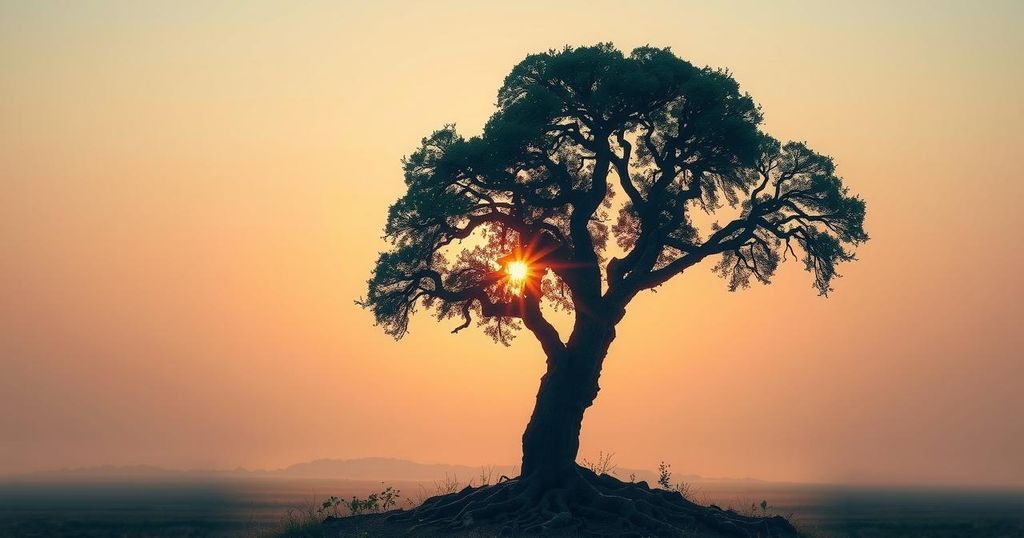Cameroon: Anticipating Another Term for Paul Biya Amid Challenges
As Cameroon approaches its elections, 91-year-old President Paul Biya is expected to run for an eighth term, despite health concerns. Critics highlight ongoing economic struggles, civil unrest, and repression of dissent as significant issues under his long tenure. Political fragmentation hampers opposition efforts, raising doubts about a viable alternative should Biya secure re-election again.
As Cameroon prepares for its upcoming elections, 91-year-old President Paul Biya is likely to seek an eighth consecutive term, consolidating his position as Africa’s longest-serving leader. Dr. John Akpo, a political commentator, asserted, “There is no doubt about President Paul Biya’s candidacy for the next election,” despite concerns surrounding his health. Party member Elvis Ngolle Ngolle indicated the ruling Cameroon People’s Democratic Movement (CPDM) is preparing for the elections, dismissing speculation about a post-Biya era as premature.
Having ruled for over 42 years, should Biya be re-elected, he would be 99 years old by the next election in 2032. His continued leadership is met with skepticism, particularly regarding the sincerity of some opposition parties expressing support for him, as Akpo pointed out that such parties are often created to undermine genuine opposition. Many Cameroonians express discontent over this political situation.
Biya’s administration has achieved some strides towards multi-party democracy and strengthened international relations, yet a protracted civil war involving Anglophone separatists has adversely affected economic growth. Opposition lawyer Tamfu Richard suggested that the president’s age might impede his capacity to alleviate the ongoing crises, as he is unable to engage directly with the affected communities.
Criticism of Biya’s government has intensified due to the repression of political dissent, with numerous peaceful protesters imprisoned, including Maurice Kamto, a prominent opposition figure liberated after international pressure. The ruling coalition’s reliance on weaker partners like the Democratic Movement for the Defense of the Republic and the Union of the Populations of Cameroon has weakened over recent elections, while the emergence of groups like the “G20” created to challenge Kamto signifies continuing political fragmentation.
Local Catholic bishops have contested government responses to their calls for improved living conditions, emphasizing that they are not demanding Biya’s resignation but urging reforms. The Church holds substantial sway over the predominantly Catholic populace, making their political stances significant. Solomon Lyonga clarified, “The bishops are not fighting with the government; the church and the state can coexist.”
Economically, Cameroon has shown signs of recovery, though growth rates have declined to 3.3% in 2023, with various socio-economic challenges contributing to stagnation in poverty alleviation. Despite a slight upturn in early 2024, approximately 23% of the population still lives below the extreme poverty line, with rampant corruption complicating governance. Akpo remarked on corruption’s deep entrenchment within the political system, undermining state initiatives for citizens.
Amidst these complexities, the opposition remains fragmented, lacking a coherent alternative to Biya’s leadership. Michele Ndoki, an opposition lawyer, indicated that some citizens prefer stability over potential change, questioning Biya’s capability to govern at his advanced age. The conversation around Biya’s potential re-election continues amidst an unclear landscape for Cameroon’s future politics.
The political context in Cameroon is dominated by President Paul Biya, who has maintained power for over four decades amidst ongoing civil strife and mounting criticism regarding his administration’s effectiveness. The forthcoming elections, likely to see Biya seeking another term, encapsulate a national discourse on governance, elder leadership, and the viability of alternatives amidst a fragmented opposition and deteriorating socio-economic conditions.
In conclusion, the political landscape of Cameroon is marked by President Paul Biya’s enduring rule amidst a backdrop of civil unrest, economic challenges, and significant opposition fragmentation. While he is anticipated to run for another term, questions about his capability to lead effectively at age 91 persist. The issues of governance, political repression, and economic instability continue to shape the nation’s future trajectory.
Original Source: www.dw.com




Post Comment